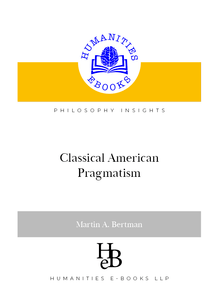-
 Univers
Univers
-
 Ebooks
Ebooks
-
 Livres audio
Livres audio
-
 Presse
Presse
-
 Podcasts
Podcasts
-
 BD
BD
-
 Documents
Documents
-
- Cours
- Révisions
- Ressources pédagogiques
- Sciences de l’éducation
- Manuels scolaires
- Langues
- Travaux de classe
- Annales de BEP
- Etudes supérieures
- Maternelle et primaire
- Fiches de lecture
- Orientation scolaire
- Méthodologie
- Corrigés de devoir
- Annales d’examens et concours
- Annales du bac
- Annales du brevet
- Rapports de stage
La lecture à portée de main
99 pages
English
Découvre YouScribe en t'inscrivant gratuitement
Je m'inscrisDécouvre YouScribe en t'inscrivant gratuitement
Je m'inscris
Obtenez un accès à la bibliothèque pour le consulter en ligne
En savoir plus
En savoir plus
99 pages
English
Obtenez un accès à la bibliothèque pour le consulter en ligne
En savoir plus
En savoir plus

Description
This book will familiarize the reader with the basics of critical thinking and informal logic - deductive and inductive arguments, form and content, fallacies, and complex arguments.
Sujets
Informations
| Publié par | Humanities eBooks |
| Date de parution | 11 janvier 2021 |
| Nombre de lectures | 0 |
| EAN13 | 9781847600462 |
| Langue | English |
Informations légales : prix de location à la page 0,0250€. Cette information est donnée uniquement à titre indicatif conformément à la législation en vigueur.
Extrait
Running Head 1
The World is all that is the caseone must come to appreciate Plato’s writings îrst as Philosophy Insights works of art, and then allow the philosophical comprehension to follow General Editor: Mark Addis
Critical Thinking
Timothy A. Crews-Anderson
‘Human beings reason well when they take the time to do so’
http://www.humanities-ebooks.co.uk For advice on use of this ebook please scroll to page 2
Publication Data
© Timothy A. Crews-Anderson, 2007
The Author has asserted his right to be identiîed as the author of this Work in accordance with the Copyright, Designs and Patents Act 1988.
Published byHumanities-Ebooks.co.uk Tirril Hall, Tirril, Penrith CA10 2JE
Reading this Ebook
*To use the navigation tools, the search facility, and other features of the toolbar, this Ebook should be read in default view. *To navigate through the contents use the hyperlinked ‘Bookmarks’ at the left of the screen. *To search, expand the search column at the right of the screen or click on the binocular symbol in the toolbar. *For ease of reading, use <CTRL+L> to enlarge the page to full screen *Use <Esc> to return to the full menu. *Hyperlinks appear in Blue Underlined Text. To return from an internal hyperlink use the ‘previous view’ button (more than once if need be). *For a computer generated reading use <View>Read out loud>
Licence and permissions
Purchasing this book licenses you to read this work on-screen and to print one copy for your own use. Copy and paste functions are disabled. No part of this publication may be otherwise reproduced or transmitted or distributed without the prior written permission of both the copyright owner and the pub-lisher. Making or distributing copies of this book constitutes copyright infringe-ment and would be liable to prosecution. Thank you for respecting the rights of the author.
ISBN9781847600462
Critical Thinking and Informal Logic
Timothy A. Crews-Anderson
Philosophy Insights. Tirril: Humanities-Ebooks, 2007
Contents
A Note on the Author
Acknowledgements
Introduction: Thinking Skilfully
Chapter 1: The Basics 1.1 Propositions 1.2 Arguments and Inferences 1.3 Deductive and Inductive Reasoning 1.4 Form versus Content
Chapter 2: Deductive Reasoning 2.1 Introduction to Deductive Logic 2.2 Syllogisms
Chapter 3: Inductive Reasoning 3.1 Introduction to Inductive Reasoning 3.2 Evaluation of Inductive Arguments 3.3 Arguments from Analogy 3.4 Statistical Reasoning
Chapter 4: Rhetorical Devices and Informal Fallacies 4.1 Rhetorical Devices 4.2 Informal Fallacies
Chapter 5: Complex Arguments 5.1 Analysis versus Interpretation 5.2 Evaluating Complex Arguments
Chapter 6: Bringing It All Together 6.1 Good Habits 6.2 Composing an Argument 6.3 Information Literacy
Appendix A: Categorical Logic A.1 Categorical Propositions A.2 The Square of Opposition and Immediate Inferences A.3 Categorical Syllogisms
Appendix B: Resources B.1 Textbooks B.2 Other Resources
Critical Thinking
A Note on the Author
Tim Crews-Anderson took his BA at the Florida State University and his MA at Georgia State University, where he has also taught as a Visiting Instructor. He is currently pursuing his PhD at the University of Illinois at Chicago.
Acknowledgements
I would like îrst to thank Dr. Sandra Dwyer both for her guidance and for the many opportunities that she has made available to me. Additionally, I would like to extend my gratitude to Dr. George Rainbolt and Dr. Melissa Merritt. Finally, I would like to thank Victoria Anne Crews-Anderson, my wife, for her tireless support and encouragement.
Introduction: Thinking Skilfully
Try for a moment to imagine a îeld of human endeavour that does not require reasoning. This is likely to be impossible as there is little that human beings do that does not involve our ability to think. Many philosophers over the years have postulated that if there is anything essential to the human being, it is the capacity for reason. Indeed, thought is so fundamental to the human experience that it is only rarely that one is without it. The operations of the mind come so naturally and so easily that one scarcely realizes that they are going on. It is perhaps for this reason that the notion of thinkingskilfullymay seem strange. The goal of this book is to consider thought as an activity, as an act or series of acts that a person deliberately, intentionally and wilfully undertakes. In sim-pler terms, the present purpose is to think about thinking. Close attention will be paid to the process of thought with the aim of evaluating reasoning and cultivat-ing good thinking skills. This project falls within the conînes oflogic, whichis the branch of philosophy that studies the reasoning process and seeks to under-stand the differences between good and bad reasoning. Human beings naturally reason well when they take the time to do so, and if their attention is properly directed, they are, in the vast majority of cases, capable of great insight. If there is one fundamental difference between a person who is an incisive critical thinker and one who is not, it is that the critical thinker takes the process of thinking seriously, consciously attends to that process and asks the right questions. The focus, therefore, will be on the concerns that one should keep in the forefront of the mind and on which questions should be asked. It is also worth noting that this book does not introduce much that the average person does not already do. Everyone has carried out all of the described reasoning activities countless times. What the book offers is a careful cataloguing of the various types of reasoning with a discussion of which of them are reliable and which are not. It is, in a sense, a guided tour of the human capacity for reasoning along with instructions for its use.
Critical Thinking 9
With most human activities the development of skills does not come with-out practice, and it is no different with thinking. It is probably unreasonable to expect them to come easily, but it is almost certain that time and effort will pay a hefty dividend. Considering the length of this book, its scope is perhaps somewhat larger than it should be. The idea is to present the basics of critical thinking and infor-mal logic and to point the way towards further study, so it is perhaps best to con-sider the book as a primer. It will provide a solid introduction to the fundamental concepts and considerations as well as links to other resources on the web and in print.
-
 Univers
Univers
-
 Ebooks
Ebooks
-
 Livres audio
Livres audio
-
 Presse
Presse
-
 Podcasts
Podcasts
-
 BD
BD
-
 Documents
Documents
-
Jeunesse
-
Littérature
-
Ressources professionnelles
-
Santé et bien-être
-
Savoirs
-
Education
-
Loisirs et hobbies
-
Art, musique et cinéma
-
Actualité et débat de société
-
Jeunesse
-
Littérature
-
Ressources professionnelles
-
Santé et bien-être
-
Savoirs
-
Education
-
Loisirs et hobbies
-
Art, musique et cinéma
-
Actualité et débat de société
-
Actualités
-
Lifestyle
-
Presse jeunesse
-
Presse professionnelle
-
Pratique
-
Presse sportive
-
Presse internationale
-
Culture & Médias
-
Action et Aventures
-
Science-fiction et Fantasy
-
Société
-
Jeunesse
-
Littérature
-
Ressources professionnelles
-
Santé et bien-être
-
Savoirs
-
Education
-
Loisirs et hobbies
-
Art, musique et cinéma
-
Actualité et débat de société
- Cours
- Révisions
- Ressources pédagogiques
- Sciences de l’éducation
- Manuels scolaires
- Langues
- Travaux de classe
- Annales de BEP
- Etudes supérieures
- Maternelle et primaire
- Fiches de lecture
- Orientation scolaire
- Méthodologie
- Corrigés de devoir
- Annales d’examens et concours
- Annales du bac
- Annales du brevet
- Rapports de stage
Signaler un problème
YouScribe
Le catalogue
Le service
© 2010-2024 YouScribe




















